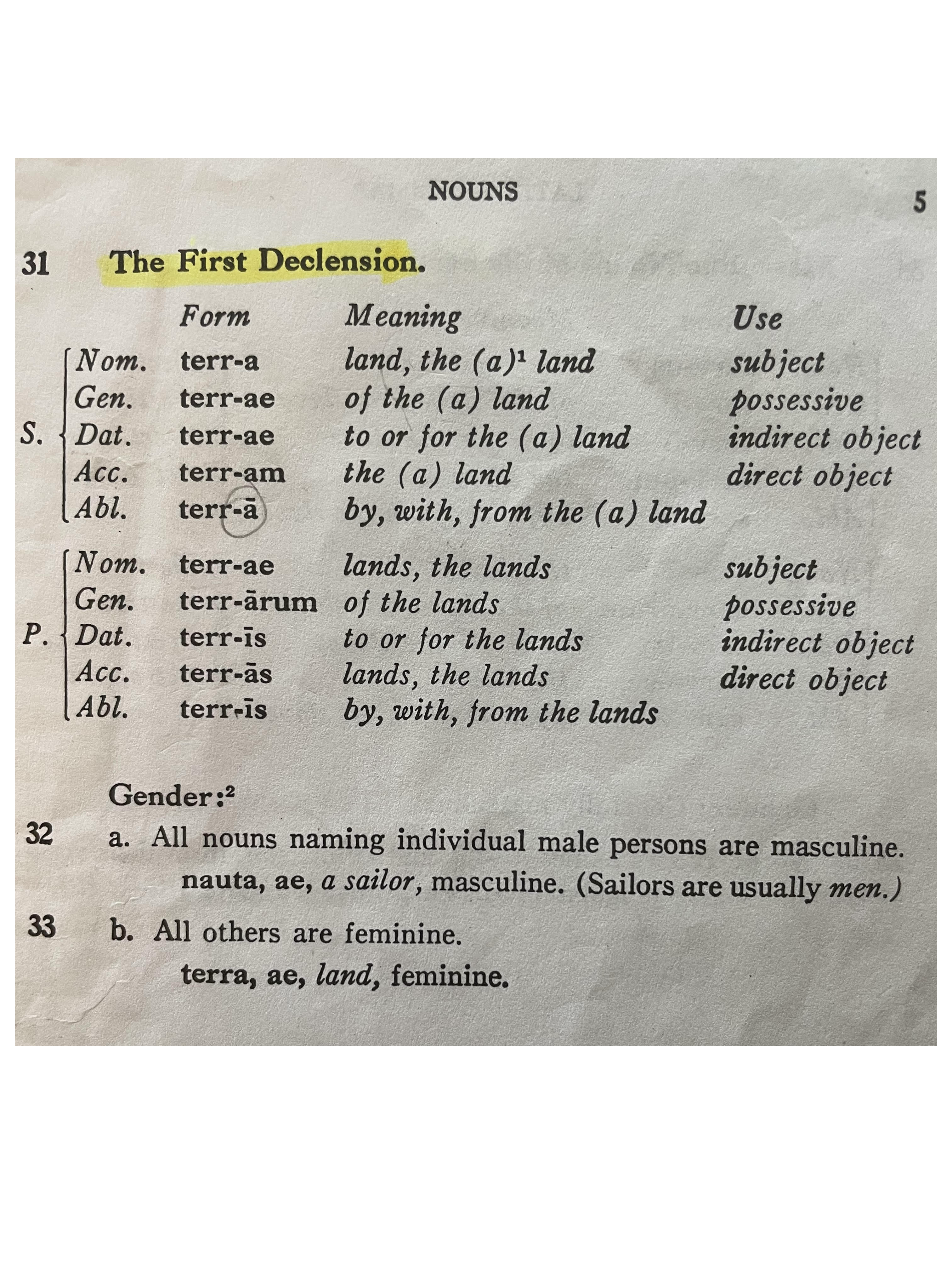Want to empower your child with sharp critical thinking skills, mastery of grammar, and a love for language? The Classical Conversations Essentials program does just that. This two-hour afternoon tutorial for students in fourth through sixth grade lays the foundation for lifelong language skills.
Essentials helps students understand English grammar deeply so they can confidently tackle more advanced language study—especially Latin in homeschool through the Challenge program—and grow in their ability to reason, communicate, and glorify God.
One of the core principles of classical education is that language skills develop thinking skills. Words are the building blocks of ideas, and those who master words gain greater ability to master complex concepts.
Case in Point: Remember Helen Keller? Before understanding language, her frustration with her inability to communicate caused her to behave like an animal. Once Anne Sullivan helped her understand that everything has a name, her brilliance emerged. Eventually, she could read five languages, including Latin.
Let’s take a closer look at how the Essentials program prepares students for Latin and other future academic challenges.
What is the Essentials Program?
Essentials is a homeschool program for upper elementary and middle schoolers that bridges the grammar and dialectic arts by equipping students with foundational language, writing, and arithmetic skills while preparing them for the Challenge programs.
It prepares students for future language study, including Latin, by teaching:
- The eight parts of speech and their functions
- How to analyze sentences systematically
- The relationship between words in various sentence structures
- How to decode language through specific questions
Students learn that every word in a sentence serves a purpose. By identifying subjects, verbs, direct objects, predicate nominatives, and modifiers, students develop the analytical framework necessary for understanding complex sentences in any language.
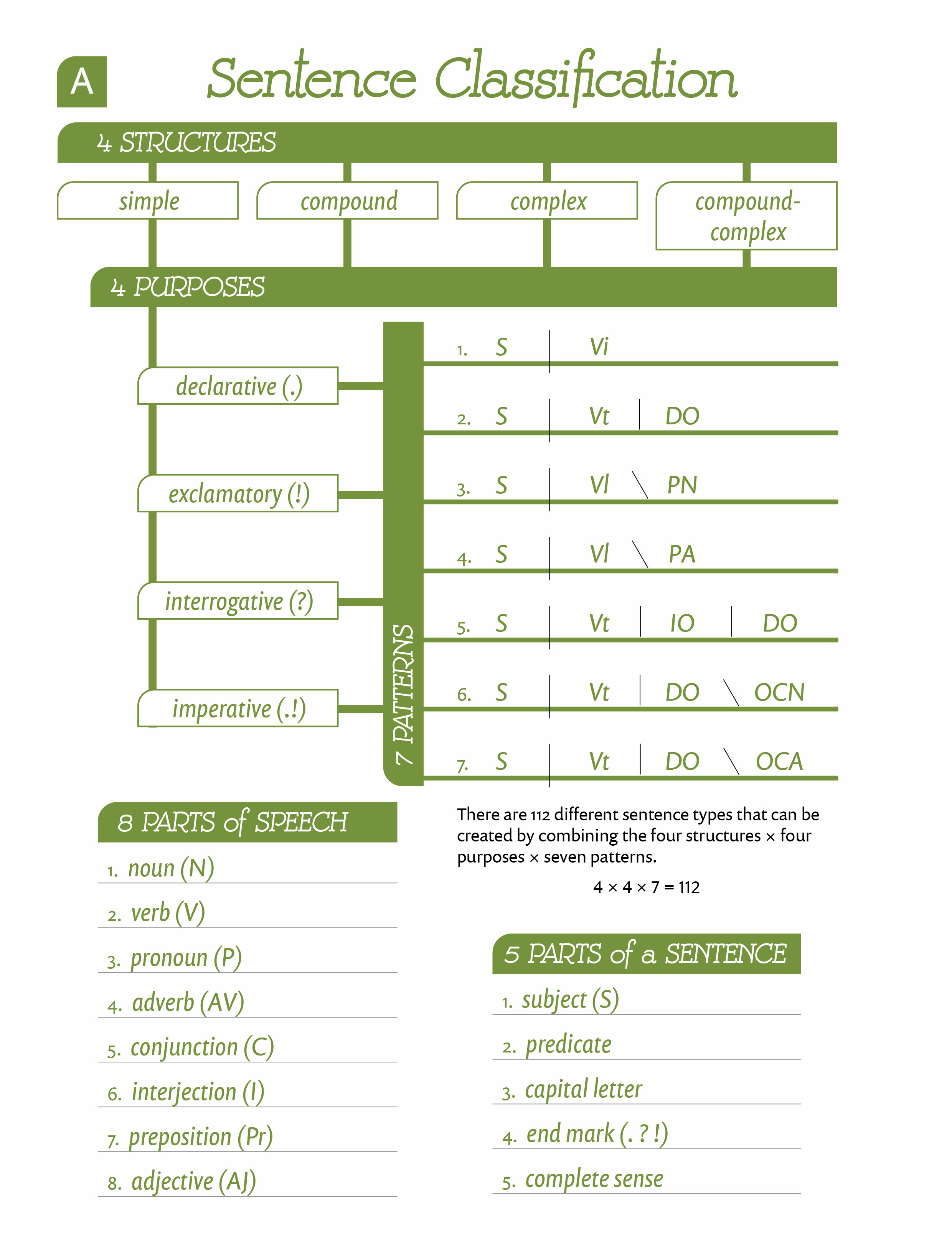
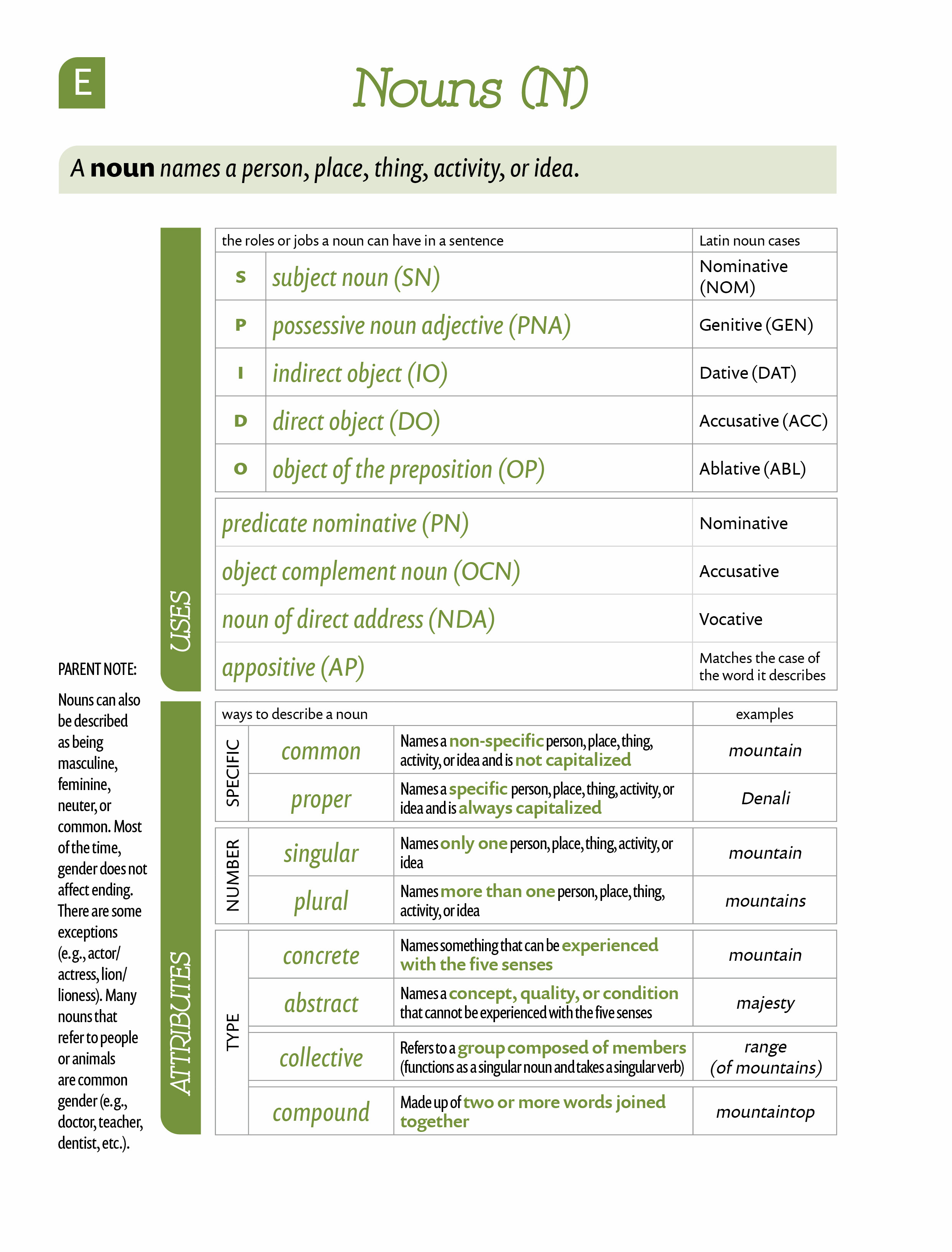
Quick Start: Try the Essentials Approach at Home
Want to see how Essentials Curriculum prepares students for Latin? Try these simple exercises with your child to get a taste of what Essentials is like. (Note: These are simplified examples and don’t represent the full scope of what’s taught in the comprehensive Essentials program.)
The Basic Question Method: Give your child this sentence: “The mighty Lord saves.”
Ask them to answer Question Confirmations:
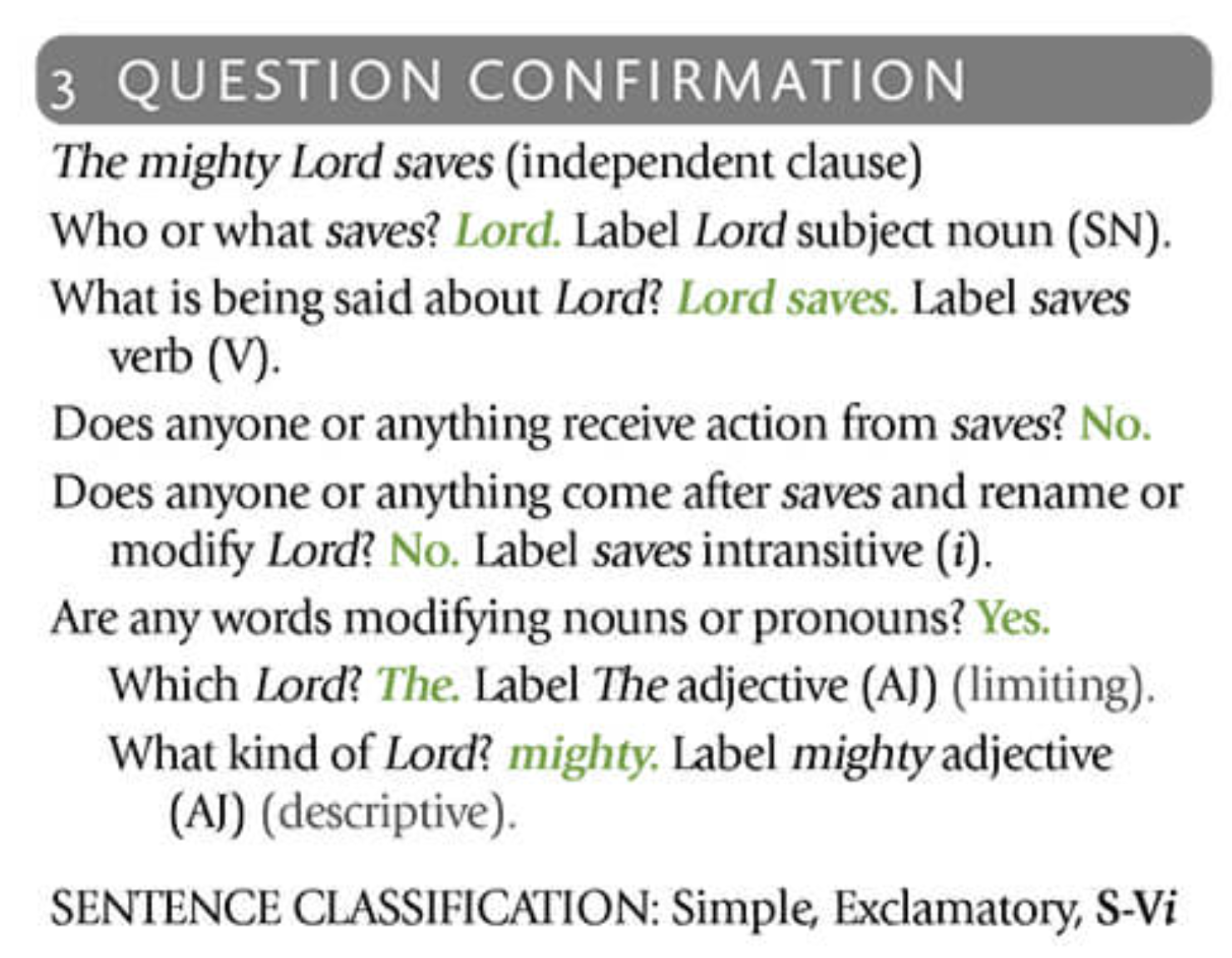
Parse the sentence by labeling parts of speech above each word using abbreviations for adjectives (AJ), subject noun (SN) and verb intransitive (Vi):

Diagram the sentence together:
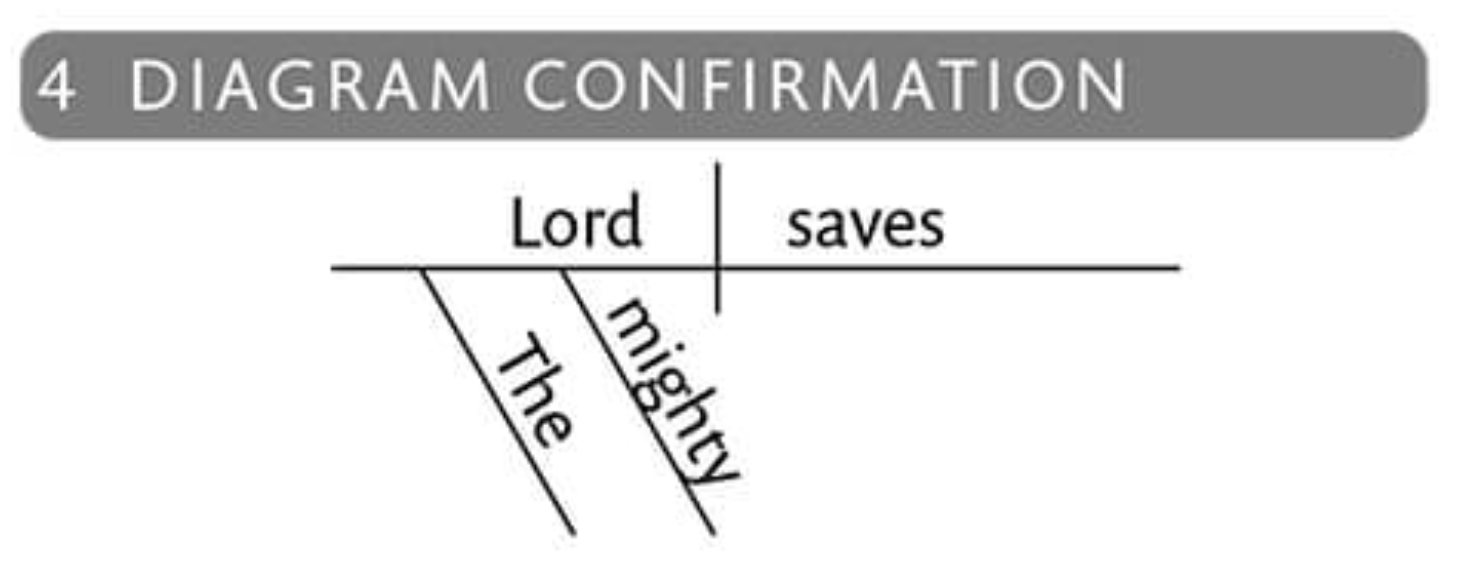
Sentence Building: Start with a simple sentence: “Birds fly.” Have your child expand it by adding:
- An adjective: “Beautiful birds fly.”
- An adverb: “Beautiful birds fly gracefully.”
- A prepositional phrase: “Beautiful birds fly gracefully through the sky.”
The “Everything I Know” Challenge: Pick one word from any sentence and ask your child to tell you everything they know about it (part of speech, job in the sentence, what it describes, etc.). This mirrors the parsing practice used in both Essentials and Latin!
The Bridge to Latin in Homeschool: How Essentials Prepares Students
Effective learning begins with what students already know and builds toward new information. Students who thoroughly understand English grammar have the foundation needed to learn Latin effectively.
The transfer of skills includes:
- Applying the same analytical questions to both English and Latin sentences
- Understanding that words can serve multiple functions (as subjects, direct objects, etc.)
- Distinguishing between what kind of word it is (noun, verb, adjective) and how it functions in a sentence
Students without this foundation must simultaneously grapple with English grammar concepts and Latin grammar, so laying the groundwork is, well, Essential!
Key Skills Developed in Essentials That Transfer to Latin
Systematic Learning Methods
Students learn to move systematically from known to unknown concepts, building knowledge gradually through increasingly complex structures while developing habits of concentration and orderly thinking.
Memory and Organization Techniques
Essentials uses the same lists, definitions, and charts approach that students will later use in Latin to memorize vocabulary, paradigm charts, such as noun declensions and verb conjugations.
Grammar Analysis Skills
Students learn to define and categorize nouns and verbs by type, attribute, usage, and tense—skills that transfer directly when analyzing Latin forms and structures.
Dialectic Thinking Process
Students develop discussion-based sentence analysis skills, learning to parse sentences by examining each word’s function and applying these patterns to new Latin concepts.
Notice the connections between the Essentials English Nouns chart and the Henle Grammar First Declension Nouns chart. In Essentials, students are learning the types of nouns and the jobs each noun does in a sentence. The Latin noun cases are included in the Essentials chart so students become familiar with these terms before entering into Latin studies in Challenge A.
Listen to Why Latin?
Bridging Grammar and Dialectic Thinking
Essentials is not just about memorization—it’s about developing the skills to think about language.
As students learn to analyze and classify words, they begin to ask “why” and “how,” not just “what.” This shift from grammar to dialectic thinking is central to classical education—and to Latin studies in the Challenge program.
In both Essentials and Challenge, students:
- Use a question-based approach to analyze sentence structure
- Discuss their reasoning with a tutor or teacher
- Build confidence through repeated practice
These are not just language skills. They are thinking skills that transfer to every other subject and area of life and are meant to be integrated.
The Practical Connection: Examples of Essentials to Latin Transfer
Here’s how specific Essentials skills transfer directly to Latin learning:
| Essentials Skill | Application in Latin |
| Identifying subject and verb | Recognizing Latin sentence structure despite different word order |
| Understanding noun functions | Making sense of Latin noun cases (nominative, genitive, dative, etc.) |
| Recognizing modifiers | Understanding Latin adjective agreement with nouns |
| Analyzing complex sentences | Breaking down complex Latin passages |
Top 3 Reasons Why Latin is Worth It
From Language to Worship: Knowing God and Making Him Known
The ultimate goal of language learning in a classical Christian education isn’t academic success—it’s discipleship.
In Essentials, students learn that language is structured and meaningful. Each word serves a purpose. Each sentence is an ordered system. This mirrors the order God has placed in the universe and in us.
As students gain confidence in decoding English and Latin, they also grow in their ability to read Scripture, articulate truth, and worship the Word Himself.
The Essentials program equips students not only for Latin—but for a lifetime of learning, leading, and glorifying God.
Essentials Is a Stepping Stone to Lifelong Learning
The Essentials program:
- Builds a firm foundation in English grammar
- Prepares students to succeed in homeschool Latin
- Develops systematic, analytical thinking
- Helps students glorify God through language
If you’re looking for a way to strengthen your child’s language skills while preparing them for the Challenge program and beyond, Essentials is the place to begin.


